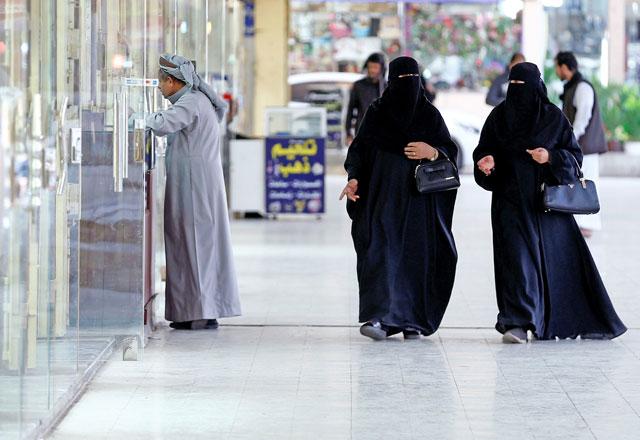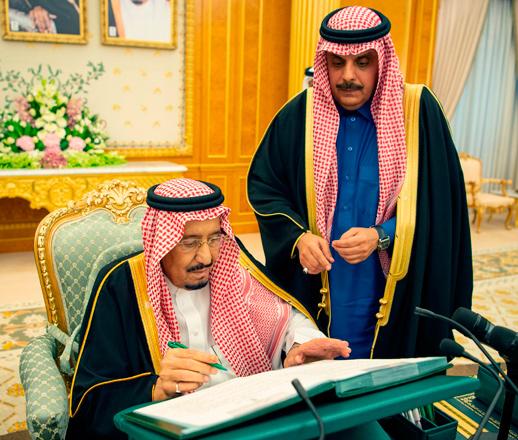You are here
Saudi Arabia budget deficit narrows after oil income recovers
By AFP - Dec 18,2017 - Last updated at Dec 19,2017

Women walk at a market in Riyadh, Saudi Arabia, on Wednesday (Reuters photo)
RIYADH — Saudi Arabia appears set to post a lower-than-expected budget deficit this year, as oil revenues rebounded and the kingdom kept public spending in check, official figures showed on Monday.
Faced by a persistent budget shortfall, the world's largest oil exporter has embarked on an ambitious reform programme to curb expenditure and lessen its dependence on crude.
The kingdom will on Tuesday announce the financial results for 2017 and next year's budget, with experts predicting the Saudi economy has shrunk for the first time since 2009.
Slightly rosier finance ministry data on Monday put the shortfall for the first nine months of 2017 at $32.4 billion, just 61 per cent of the $52.8 billion deficit projected for the whole year.
That was thanks to revenues in the first nine months rising to $120 billion, a 23 per cent surge compared to last year, while public spending remained unchanged at $152.4 billion.
The revenue boost was mainly due to a 33per cent jump in oil income to $82 billion as crude prices rebounded to above $60 a barrel thanks to an output cut by major OPEC and non-OPEC producers.
Non-oil income rose six per cent to $38.1 billion, but there was a massive third quarter surge of 80 per cent after the introduction of fees on the dependents of expatriates and duty on cigarettes, power and soft drinks.
Riyadh's reform programme has already cut fuel and power subsidies as the authorities seek to contain spending.
To further boost income the kingdom plans to introduce a five-per cent value-added tax in the new year.
Related Articles
Saudi Arabia announced a 2015 budget with a huge deficit at the weekend as the world's largest crude exporter begins to feel the impact of its own decision not to shore up oil prices.
KUWAIT CITY — Kuwait, a member of the Organisation of Petroleum Exporting Countries (OPEC), projected a record budget deficit for the fiscal
RIYADH — Saudi Arabia on Tuesday announced an expansionary budget for 2019 but projected a shortfall for the sixth year in a row due to low














